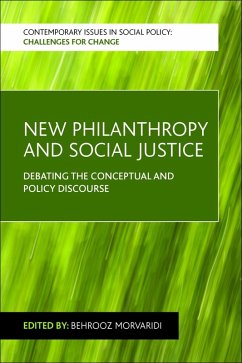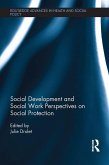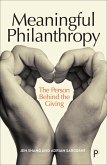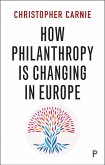There is a broad consensus that traditional philanthropy has the potential to be transformative and address inequalities and injustices, as well as provide relief to the poor. Over the last two decades individual capitalists and private corporations have become increasingly involved in philanthropy, often through foundations targeted at helping to reduce social problems associated with poverty, disease and food insecurity. This important book questions the political and ideological reasons behind rich individuals and large companies choosing to engage in poverty reduction through philanthropy. The question of concern is not whether new philanthropy is good or bad, but what motivates this form of giving and whether the sources of new philanthropy funding are legitimate. The book argues that this new philanthropy risks being a sticking plaster without long-term results, because it fails to tackle social injustice or the structural reasons for inequality. It will be of value to academics, upper-level undergraduates and postgraduates in politics, sociology, economics and development studies.
Dieser Download kann aus rechtlichen Gründen nur mit Rechnungsadresse in A, D ausgeliefert werden.









